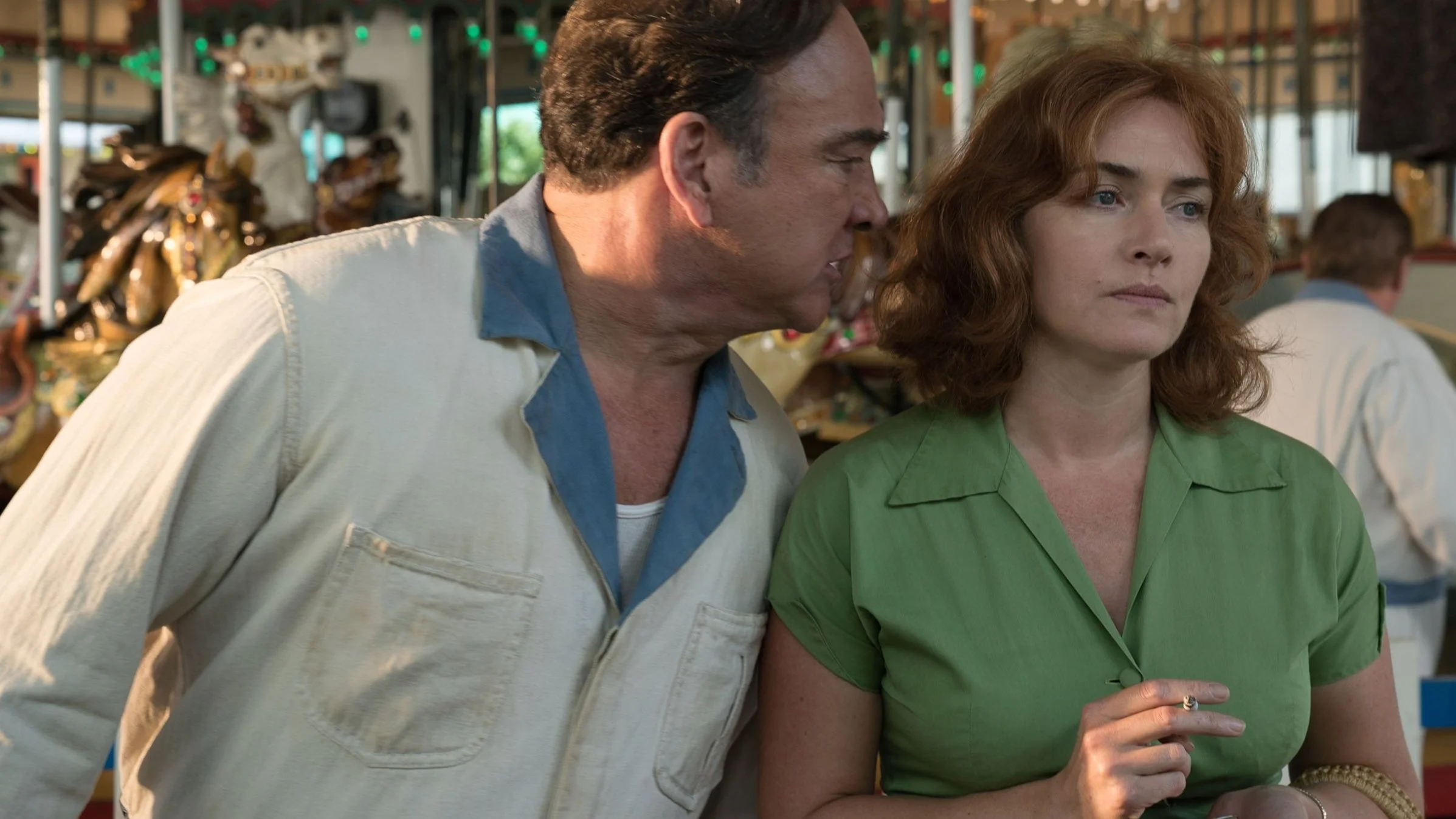Wonder Wheel
Woody Allen lives in the past by evoking the early 1950s in his new drama.
Romantic carousel: Jim Belushi and Kate Winslet
In Radio Days (1987), Woody Allen summoned up the era of his childhood and there's a comparable nostalgia for a past age in this new piece of his set in Coney Island in the 1950s. That is reflected in Vittorio Storaro's bright images and in the music heard on the soundtrack including recordings by Jo Stafford ('You Belong to Me') and Georgia Gibbs. ('Kiss of Fire'). However, the closest parallel in Allen's earlier work is the more recent Blue Jasmine since Wonder Wheel is a drama with a female character, Ginny payed by Kate Winslet, at its centre. Unfortunately, the comparison underlines the fact that Allen's screenplay this time around (this being one of his works in which he is writer and director but does not appear on screen) is much inferior to that for its predecessor even if the aims are similar.
Ginny, who once had ambitions to be an actress, is now a waitress in a less than exciting marriage to a carousel barker, Humpty (Jim Belushi), who had also been married before. The story is told by a Coney Island lifeguard, Mickey (Justin Timberlake), who is having a secret affair with Ginny but then finds himself attracted to her stepdaughter Carolina (Juno Temple). Five years earlier the latter had become estranged from her father due to her decision to marry a gangster but now she returns and soon makes up with him. However, she remains uneasy because, having turned against her husband, she has given information to the police and now fears that the Mob will be after her seeking revenge.
Even without the addition of Ginny's young son, Richie (Jack Gore), proving to be a firebug, the film contains drama a-plenty and in introducing it Mickey does seem to be Allen's alter ego confirming that he likes melodrama. But, impliedly, this is melodrama of an ambitious kind since references are made later to Eugene O'Neill and to Greek tragedy. Furthermore, quite apart from a certain staginess emerging at times to remind us of theatre, the way in which the plot develops - it is built on Ginny's jealousy of Carolina as her rival for Mickey's affections - suggests the influence of Arthur Miller and especially of Tennessee Williams.
In Blue Jasmine Woody Allen seemed to draw on A Streetcar Named Desire, but the film stood up in its own right because he was writing on his best form. Here, in marked contrast, the dialogue fails to measure up even remotely to the writers directly or indirectly evoked. Perhaps this accounts for Jim Belushi's tendency to overplay and for Justin Timberlake's inability to make anything much of Mickey. The leading actresses fare much better, however. There is very good work from Juno Temple and, without doubt, Kate Winslet's persuasive and committed performance is the film's greatest asset. But at the close not even Winslet can prevent Ginny's big scene from coming over as a pale echo of what Allen enabled Cate Blanchett to carry off in her Blanche DuBois-style portrayal in Blue Jasmine. Ultimately, it's all down to the quality of the writing and Wonder Wheel, watchable as it is, comes under the heading of second best.
MANSEL STIMPSON
Cast: Jim Belushi, Juno Temple, Justin Timberlake, Kate Winslet, Max Casella, Jack Gore, David Krumholtz, Tony Sirico, Thomas Guiry, Debi Mazar.
Dir Woody Allen, Pro Letty Aronson, Erika Aronson and Edward Walson, Screenplay Woody Allen, Ph Vittorio Storaro, Pro Des Santo Loquasto, Ed Alisa Lepselter, Costumes Suzy Benzinger.
Amazon Studios/Gravier Productions/Perdido Productions-Warner Bros.
101 mins. USA. 2017. Rel: 9 March 2018. Cert. 12A.


